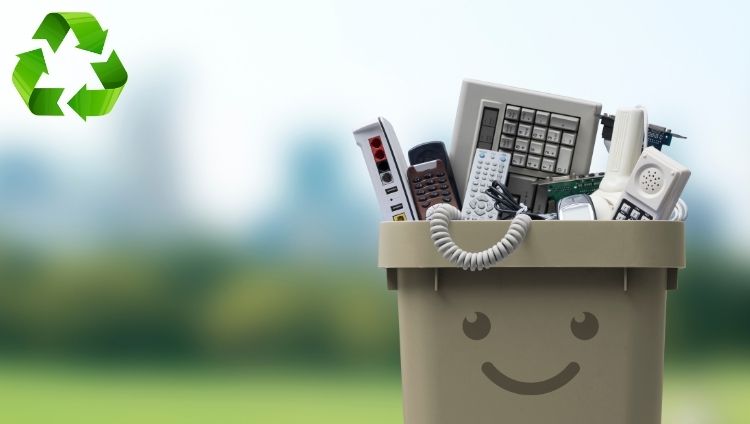In recent years, waste management has become a pressing global issue due to the increasing population and changing consumption patterns. Waste is generated in various places, such as households, factories, construction sites, refineries, and nuclear power plants.
The rise in lifestyle improvements and consumption trends has led to alarming threats to the environment. Improper waste management can result in significant problems for human health and the environment.
Therefore, individuals and businesses must understand the reason and the importance of why waste management is so popular.
Related Post: How Waste Management affects the Environment?
Reasons for their Popularity
Food
Food waste disposed of in landfills can generate methane gas, a potent greenhouse gas more harmful than carbon dioxide.
According to the Environmental Defense Fund (EDF), methane can cause up to 84 times more environmental harm than carbon dioxide within the first 20 years after its release.
This gas traps sunlight, contributing to global temperature increases.
Thus, effective food waste management is essential to reduce its environmental impact and address climate change.

Economy
Proper waste management not only protects natural resources, biodiversity, and human health but also offers economic opportunities through the development of efficient waste management systems.
In developed countries, waste is usually deposited in landfills, whereas in developing nations, it often accumulates on streets and in vacant lots.
Improper disposal poses environmental risks and affects public infrastructure.
Thus, prioritizing waste management is crucial for both environmental protection and economic progress.
Over the years, waste management has become a vital industry, capable of driving economic growth while safeguarding the planet.
Businesses can reduce their waste disposal costs by recycling materials.
By understanding the types of waste they produce, companies can choose appropriate waste management services and lower transportation expenses.
Effective waste management benefits the economy and promotes environmental sustainability by cutting greenhouse gas emissions and conserving natural resources, which also improves a company’s reputation.
Restaurants can contribute to waste reduction by donating surplus food to those in need rather than discarding it, thereby enhancing their community image and demonstrating environmental responsibility.
Related Post: How does Waste Management affect the Economy?

Importance of Waste Management
No doubt traditional methods of waste management are no longer effective.
Over time, waste management techniques have evolved, and it’s crucial to understand the importance of proper waste management for a sustainable future.
By realizing the power we have to make a difference, we can take action to ensure that we’re positively contributing to waste management.
Simple steps such as participating in proper recycling, regulating our trash, and adopting zero-waste habits can help reduce waste production.
Learning more about waste management can also make a significant impact. By becoming informed and taking action, we can all help make the world a cleaner place.
How do we Play our Role in Managing Waste?
Proper waste management is not solely the responsibility of government organizations.
As responsible citizens, we must also play our part in managing waste. There are several ways to achieve efficient waste management, such as:
Energy Recovery
Although energy recovery may not always be the primary focus of waste management, its contribution to sustainable practices is significant.
This method involves incinerating non-recyclable waste, which not only reduces landfill usage but also generates renewable energy, playing a crucial role in cutting carbon dioxide emissions and enhancing environmental health.
Additionally, energy recovery helps mitigate methane emissions, a hazardous byproduct of traditional landfill operations.
Integrating energy recovery into waste management strategies moves us closer to a cleaner and more sustainable future.

Waste Recycling
Recycling facilities play an important role in waste management by processing waste and repurposing it for further use.
Biodegradable waste, such as food, paper, and wood, can be decomposed naturally to create organic fertilizer and manure for plants.
Reutilization of Waste
Many products can be used multiple times after being purchased. These items can be used for their original purpose again or repurposed for different uses.
One way to do this is by donating books and clothes to those in need for reuse. Additionally, clothes can be redesigned and repurposed for a new and refreshed look.

Waste Reduction
In order to decrease waste, it is crucial to begin at the origin. This entails minimizing the quantity of waste generated on a daily basis.
By consciously considering the products we utilize and our methods of disposal, we can create a substantial effect.
For example, when dining at a restaurant, it is advisable to order only what can be consumed entirely, thus preventing unnecessary waste.

Frequently Asked Question
What is the most popular waste management?
In waste management, recycling and composting are two effective techniques.
Composting, however, can only be done on a small scale, such as by individuals at home or in areas where waste can be mixed with soil for farming or landscaping purposes.
Why is waste management a global issue?
Improper waste management and dumping have various harmful effects, including soil pollution, as hazardous chemicals from waste can leak into the soil and contaminate our food.
Landfill waste burning can also result in toxic substances being released into the air, leading to air pollution and the emission of highly toxic dioxins.
Is waste management a social problem?
The waste trade on a global level leads to environmental inequality, hierarchy, and exploitation based on class and race, which disproportionately affects vulnerable communities that do not generate waste.
This problem is a form of colonialism that needs to be addressed.
What is the conclusion of waste management?
Producing garbage is not only harmful to the current generation but also for future generations.
Educating and encouraging people to practice the 3Rs (Recycle, Reuse, and Reduce) is crucial to reduce waste. Waste management should be a top priority for municipalities and governments.


